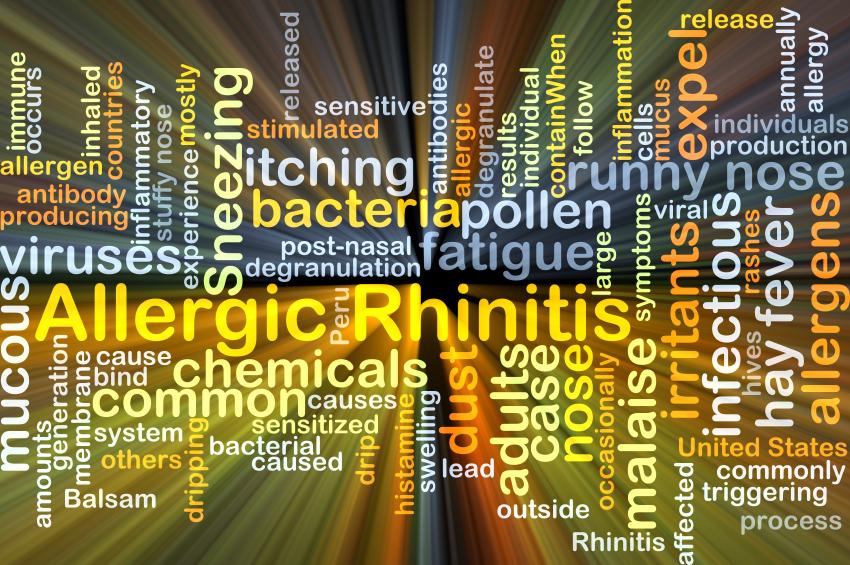Control Your Allergies By Strengthening Your Immune System

The U.S. Centers for Disease Control and Prevention reports that the number of Americans living with environmental allergies is rising. Currently, the American College of Allergy, Asthma and Immunology Allergies estimates that as many as 50 million people suffer with allergies and 26 million struggle with hay fever. There are some steps you can take to help control your allergies. The Allergy and Asthma Foundation of America recommends:
- Use area rugs, as opposed to carpeting.
- Keep clutter to a minimum, and dust and vacuum at least once a week.
- Keep windows closed, even while the temperature is warm; use an air conditioner instead.
- Change air condition filters regularly. Learn more about maintaining good indoor air quality.
- Keep bedroom doors closed if you have a pet.
- Use allergen-proof covers on pillows and mattresses and wash linens weekly.
- Use a dehumidifier.
- Limit the number of house plants. Remove mold from surfaces.
Allergies and the Immune System
But you may be able to help control your allergies by maintaining a strong immune system. A study conducted by the Institut Pasteur and published in Science found that microbiota may have a role in preventing allergies.
As the Institut Pasteur explains, microbiota, also referred to as gut flora, is the microbe that lives in our intestines and involved with various functions, including immune defense. Although scientists have speculated for years that microbiota plays a role in allergies, researchers from the Institut Pasteur believe that this new study demonstrates how a reduced number of microbiota can lower the effectiveness of the immune system and trigger allergies.
In addition to genetics playing a significant role in environmental allergies, some experts believe the use of insecticides, germicides and antibacterial substances has sanitized our environment and lowered the number of microbiota in our intestines, contributing to the rise in allergies. This is referred to as the hygiene hypothesis, which states that a lack of exposure to parasites and infectious agents during childhood can interfere with the development of the immune system and raise the risk of developing allergies, particularly when combined with antibiotic overuse.
Allergies occur when your immune system mistakes a harmless substance as a germ. To protect your body from the irritant or allergen, your immune system produces IgE antibodies (chemicals designed to react to allergens) and trigger histamine. Histamine is the same chemical released when you have a cold. The longer the exposure to the allergen, the longer the symptoms last. Common allergens that produce cold-like symptoms include dust mites, pollen and mold spores. Allergies are not contagious, and they are sometimes nothing more than an annoyance. Other times, they can lead to complications, including upper-airway breathing obstructions.
For relief, many people rely on prescription and over-the-counter medications, but some foods can also help manage allergies. For instance, researchers have evidence that omega-3 fatty acids may help improve gut health and alleviate bronchial inflammation and allergic disease. Different types of fish, fish oil, nuts/seeds and green leafy vegetables are good sources of omega-3 fatty acids. Learn more about omega-3 fatty acids here.
Over the last few years, probiotics (good bacteria that help control harmful bacteria) and prebiotics (carbohydrates that can't be digested and function as food for probiotics) have received a great deal of credit for their gut health benefits. While studies have concluded that probiotics and prebiotics can influence gut immune response, investigators have not found a connection to alleviating allergies, except for one small study that suggested Lactobacillus acidophilus, which is found in yogurt and sourdough, might help control pollen allergies.
Additional immune boosting tactics:
- Exercise, per your doctor’s advice.
- Eat plenty of fruits, vegetables, whole grains, lean protein and healthy fats.
- Avoid tobacco.
- Control blood pressure.
- Limit alcohol consumption to two drinks per day for women and 3 drinks per day for men.
- Get seven to eight hours of sleep every night.
- Wash hands throughout the day.
f you suffer with allergies, be sure to have a discussion with your MDVIP-affiliated physician. He or she is your best resource to help you prevent or better manage allergies and their potential complications, as well as other issues that you may be at risk of developing. Further, the unique relationship you share with your MDVIP-affiliated doctor makes it easier for him or her to recommend the most effective course of action to help control your specific allergies. Don’t have an MDVIP-affiliated doctor? Find one near you by clicking here.
This content was last reviewed February 2021.


